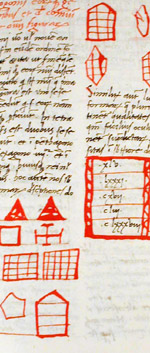The concentration focuses on the changes in cultural practices, social patterns, political and economic forms, and artistic and literary traditions in the context of transition and change.
Late Antique Cultures Track
Late Antique Cultures centers on the third through the ninth centuries inclusive and studies human activity in all its variety unrestricted by the conventional demarcations of “classical” and “medieval.”
Late Antique Cultures Track
Late Antique Cultures centers on the third through the ninth centuries inclusive and studies human activity in all its variety unrestricted by the conventional demarcations of “classical” and “medieval.”
Requirements
Two courses, one each in Roman history (CLAS 1310 or 1320; 1320 is recommended) and in medieval history (HIST 1205 or 1211; 1205 is recommended); one 1000- or 2000-level course in an approved language; six other courses drawn from appropriate offerings in Late Antique Cultures and approved by the concentration adviser.
Honors

Honors are awarded to students who, in addition to completing the required courses, present a meritorious honors thesis. The thesis permits students to synthesize various disciplines or interests or to pursue a new interest in greater depth. To be eligible for Honors, students must complete a minimum of six approved courses in Late Antique Cultures by the end of their third year with more grades of A than B. Students should apply for admission to Honors and should meet with their faculty adviser(s) no later than spring of the junior year to plan the thesis project. Accepted candidates write the thesis in a two-semester course sequence under the supervision of a director and second reader drawn from the Medieval Studies faculty.
Banner photo by Carole Raddato is licensed under CC BY-SA 4.0